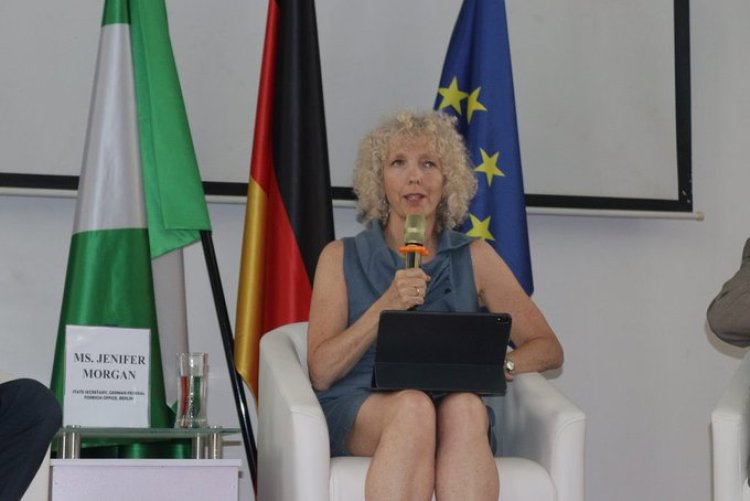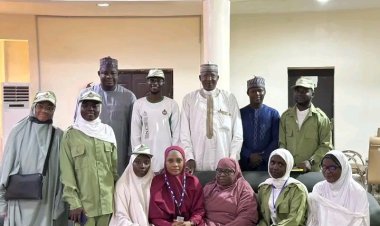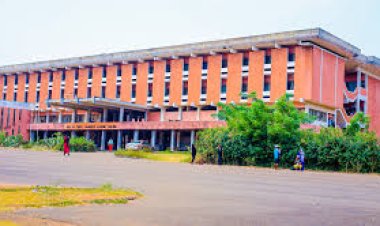UNILAG: German State Secretary Lectures on Climate Change
The German State Secretary and Special Envoy for International Climate Action at the Federal Foreign Office in Berlin, Mrs. Jennifer Morgan, delivered a public lecture at the University of Lagos, UNILAG.

The German State Secretary and Special Envoy for International Climate Action at the Federal Foreign Office in Berlin, Mrs. Jennifer Morgan, delivered a public lecture on Tuesday, May 7th, 2024, at the Tayo Aderinokun Hall.
RECOMMENDED: Federal Government Scholarship & Education Bursary Award for Nigerians, 2023/2024
The event was jointly organized by the University of Lagos and the Consulate-General of the Federal Republic of Germany in Lagos. During her talk on the climate crisis and the global energy transition, she emphasized the dangers posed by climate change.
According to Morgan, ‘The climate crisis is one that the world cannot ignore. After months of drought, sudden heavy rainfall washes away lives and livelihoods. If the climate crisis is not addressed, an estimated 14.5 million deaths could occur globally. Countries worldwide, including Germany, are embarking on an energy transition journey that reduces reliance on carbon energy.’
The visible effects of climate change include melting ice and rising sea levels, which threaten low-lying areas, displace people, damage infrastructure, and cause floods. Additionally, global warming contributes to more severe heatwaves, creating conditions conducive to fire outbreaks.
SUGGESTED: Delta State University of Science and Technology (DSUST) Notice of Holiday Break for 100 Level Students
Mrs. Morgan also highlighted opportunities arising from these climate changes. She stated, ‘Africa holds immense untapped energy potential. While 60% of the best spots for solar energy infrastructure installation are in Africa, only 1% of that potential is currently utilized.'
She encouraged African youths and researchers to actively participate in this necessary transaction, as the German government collaborates with African countries and institutions to ensure an equitable and inclusive energy shift.

 Zita Ezechi
Zita Ezechi 



